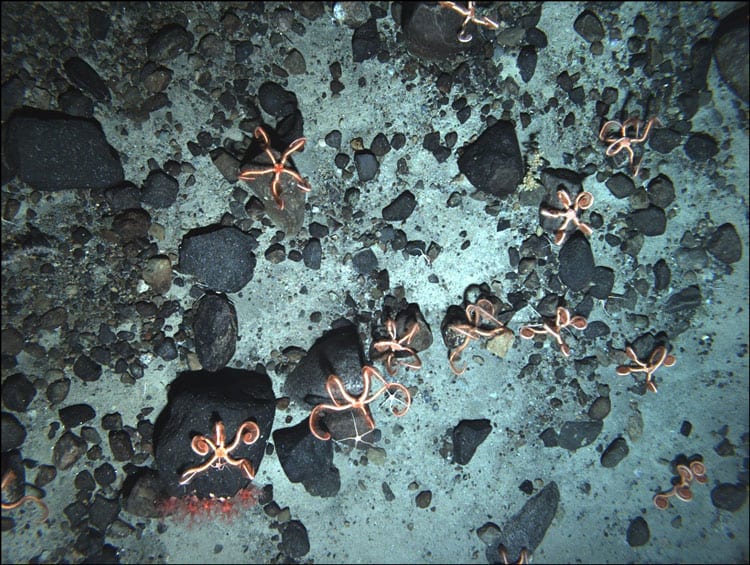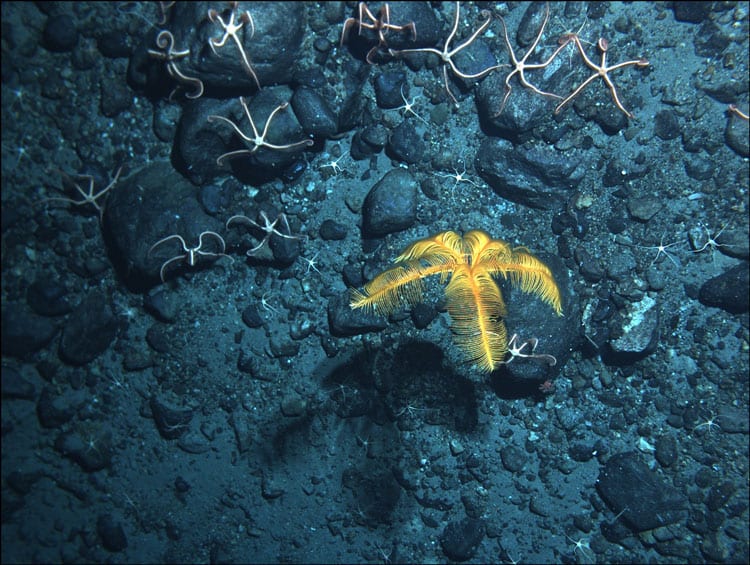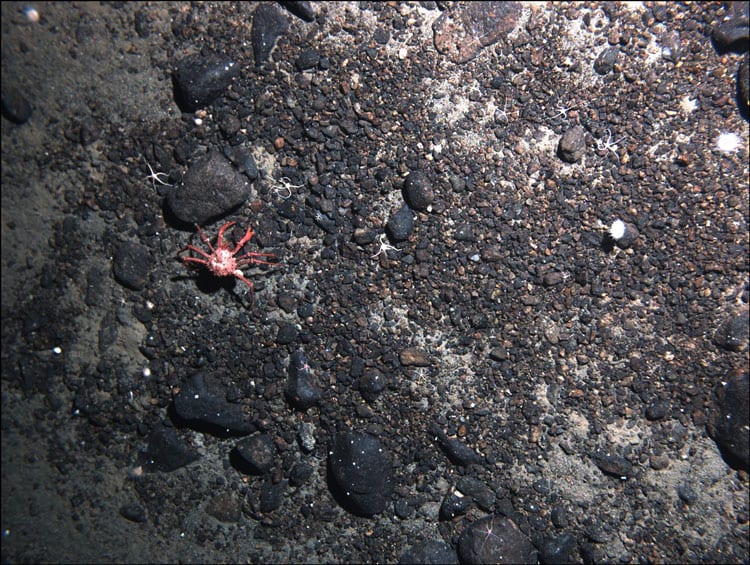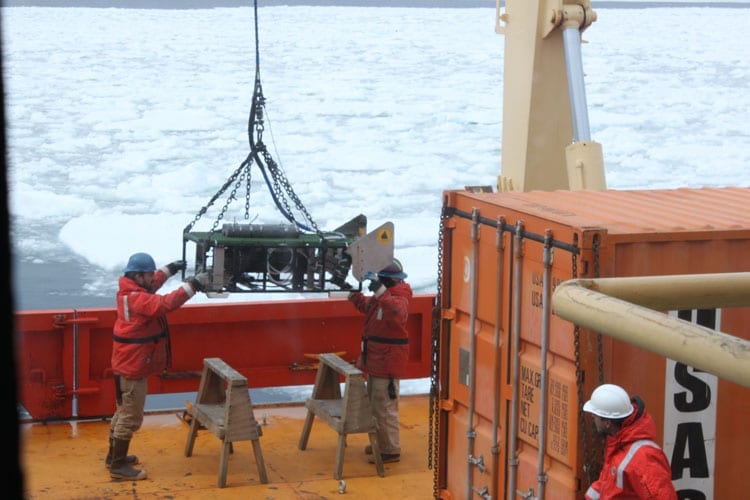King Crabs Threaten Antarctic Ecosystem Due to Warming Ocean
September 28, 2015
King crabs may soon become high-level predators in Antarctic marine ecosystems where they haven’t played a role in tens of millions of years, according to a new study led by Florida Institute of Technology.
“No Barrier to Emergence of Bathyal King Crabs on the Antarctic Shelf,” published online in the Proceedings of the National Academy of Sciences, ties the reappearance of these crabs to global warming.
Lead author Richard Aronson, professor and head of Florida Tech’s Department of Biological Sciences, said the rising temperature of the ocean west of the Antarctic Peninsula – one of the most rapidly warming places on the planet – should make it possible for king crab populations to move to the shallow continental shelf from their current deep-sea habitat within the next several decades.
These first observations of a reproductive population of King Crabs on the continental slope off Marguerite Bay on the western Antarctic Peninsula were made using Seasled, an underwater camera system developed at Woods Hole Oceanographic Institution, in Dr. Hanu Singh’s lab. That area is only a few hundred meters deeper than the continental shelf where the delicate ecosystem flourishes. The research, conducted during Antarctic summer expeditions in 2010, 2013 and 2015 was funded by the National Science Foundation (NSF).
Researchers found no barriers, such as salinity levels, types of sediments on the sea floor, or food resources, to prevent the predatory crustaceans from arriving if the water became warm enough.
That arrival would have a huge impact.
“Because other creatures on the continental shelf have evolved without shell-crushing predators, if the crabs moved in they could radically restructure the ecosystem,” Aronson said.
The use of the robotic Seasled camera platform allowed researchers unprecedented imagery of vast swaths of the Antarctic benthic seafloor in open and partially ice-covered waters. While the primary mission was in understanding the migration of King Crab species, this work also allowed the researchers to better describe the benthic environment in the Western Antarctic Peninsula, and led to the discovery of a skate egg nursery and the first natural whalefall in Antarctica.
According to Hanumant Singh, the robotics lead at Woods Hole Oceanographic Institution, “This project epitomizes how multidisciplinary collaborators – in this case robotics engineers and Polar biologists – can come together to efficiently study problems of critical global social relevance.”
The study provides initial data and does not by itself prove that crab populations will expand into shallower waters. “The only way to test the hypothesis that the crabs are expanding their depth-range is to track their movements through long-term monitoring,” said James McClintock of the University of Alabama at Birmingham (UAB), another author of the study.
The overall effect of the migration of king crabs to shallower waters, explained postdoctoral scientist and study co-author Kathryn Smith of Florida Institute of Technology, would be to make the unique Antarctic ecosystem much more like ecosystems in other areas of the globe, a process ecologists call biotic homogenization.
Such changes, the researchers conclude, would fundamentally alter the Antarctic sea-floor ecosystem and diminish the diversity of marine ecosystems globally.
The data used in the paper were collected during an expedition to Antarctica run jointly by NSF, the Swedish Polar Research Secretariat and the Swedish Research Council. The expedition included scientists from Florida Tech, UAB, the Woods Hole Oceanographic Institution, the University of Gothenburg in Sweden and the University of Southampton in the United Kingdom.
The Woods Hole Oceanographic Institution is a private, non-profit organization on Cape Cod, Mass., dedicated to marine research, engineering, and higher education. Established in 1930 on a recommendation from the National Academy of Sciences, its primary mission is to understand the ocean and its interaction with the Earth as a whole, and to communicate a basic understanding of the ocean’s role in the changing global environment. For more information, please visit www.whoi.edu.




